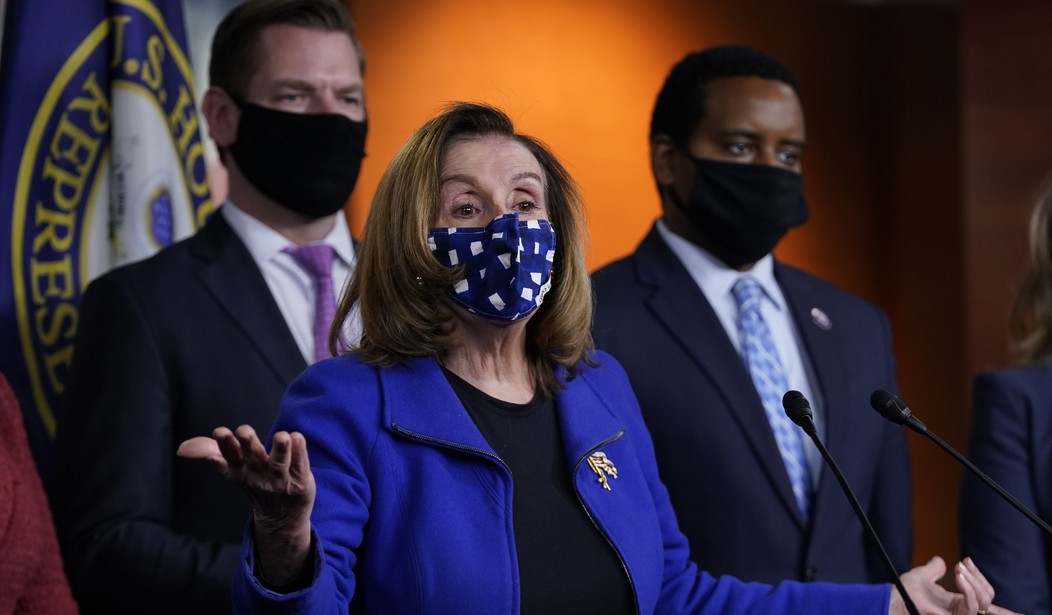If we’ve learned anything in recent years, the answer to the above question is “no.”
From family holiday dinner tables to lifelong friendships, to arguing with “friends” and even strangers on social media to the point of lost control, the pervasiveness of political discord has become all-encompassing — including positions we take on non-political issues.
The best recent example being the LA Times columnist who compared her pro-Trump neighbors to Nazi sympathizers after they graciously cleared snow from her driveway.
According to a new research paper in the Journal of Public Policy & Marketing, our political views can even impact what we buy and which jobs we choose.
“Political polarization is having far-reaching impacts on American life, harming consumer welfare and creating challenges for people ranging from elected officials and policymakers to corporate executives and marketers.”
Prius, anyone?
As reported by Reason, researchers say one’s political identity not only becomes self-reinforcing through association with others with shared beliefs but can also create a “group-specific shared reality” that makes it harder to relate to those with opposing views.
Translation: “They’re wrong, I’m right. Without question. Without exception.”
There is no better example than exclusively watching cable news outlets, reading publications, and following websites that only tell us what we want to hear or already believe — even so-called “fake news” — yet we run from opposing content that tells us things we don’t want to hear — even when they’re true — as if running from the plague.
Know thy enemies.
Personally, I find the practice both counterintuitive and counterproductive. Rush Limbaugh’s philosophy was the more liberals talk, the more they tell us exactly who they are. The more they tell us who they are and what they believe, the easier it becomes to counter their arguments. As Rush was wont to say, “I know liberals better than they know themselves.” As had mostly the case for more than 30 years, Rush was right.
By its nature, politics is partisan. Moreover, it works best that way.
Civil discourse, sharing of divergent ideas, and engaging in rigorous debate are necessary parts of a “democratic” government and the society it is charged with serving. However, necessary partisanship has given way to often-bitter hyperpartisanship, to the point of all but becoming a blood sport — which now feeds on itself.
“[A]s society has become increasingly polarized, politicians’ objectives diverge and their animosity toward the opposition grows, thereby reducing opportunity for compromise. Partisan incivility is a major reason for failed dialogue: Uncivil exchanges result in disagreement and greater polarization regardless of the evidence presented.”
There has been no better example of the above over the last four years than the hood ornament of the Trump Derangement Syndrome clown car, House Speaker Nancy Pelosi.
From the Russia “collusion” hoax to two impeachment charades to arrogantly ripping up her copy of Trump’s State of the Union address, to refusing to compromise on a second COVID relief package, as she later admitted, until “we have a new president” — out of fear that Trump might get the credit — Pelosi was far more against all things Trump than for serious Democrat proposals — to the point of irrationality.
Even within the Republican Party itself, internecine warfare between Never-Trumper conservatives (as opposed to TDS-riddled Lincoln Project posers and their ilk), who staunchly believed Trump could do no right, vs. Always-Trumpers, who were just as staunch in their belief that he could do no wrong.
Newsflash: Both groups were and remain wrong.
I’ve had many “healthy discussions” with the former over the last four years, many of them intelligent, longtime friends, more than a few of whom even refused to admit that Neil Gorsuch, Brett Kavanaugh, and Amy Coney Barrett on the Supreme Court — vs whomever the Hildebeast would have nominated — was validation enough to vote for Trump.
Irrational, from a conservative perspective? Of course.
On the other hand, so were many of my conversations with the latter. Again, perfectly intelligent people, who would twist themselves into pretzels, defending, justifying, rationalizing, or excusing outright everything Donald Trump did, said, or tweeted.
Don’t misunderstand me. As a constitutional conservative, I voted for Trump, both in 2016 and 2020, when he became my only viable option. Prior to the general election, I preferred any candidate left standing at any given time over Trump. I was not among those who believed he could beat Hillary.
After the election, I believed he was the only one of the initial 17 major candidates who could have done what he did. I vigorously supported his policies and his wins. Just as vigorously, I skewered the Democrats and their lapdog media over their disgusting, never-ending campaign to destroy him, and the rest of his family if necessary.
That said, I called Trump out when I believed it was in my — and his — best interest to do.
A president, or any other person in power, who is only surrounded by people who refuse to tell him the truth; who only tell him what he wants to hear is on a slippery slope; be it from developing a false sense of security, or actually believing he can do no wrong. That is neither good for him nor the people who support him.
The bottom line.
We can be steadfast in our positions, defend them vociferously, and refuse to compromise when compromise would undermine our values and best interests. However, when one side — within a party, as well — is busily throwing the other side under the bus and vice versa, we play directly into the hand of those who seek to not only destroy us and our credibility but America as we know it, as well.













Join the conversation as a VIP Member